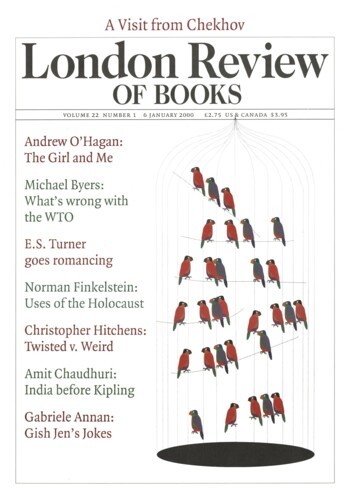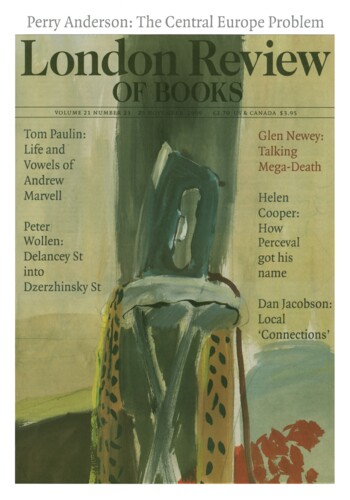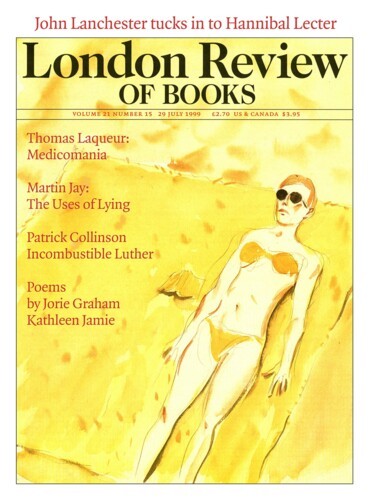Is the lady your sister? an innkeeper’s diary
E.S. Turner, 27 April 2000
John Fothergill, the high-handed host of the Spreadeagle at Thame between the world wars, described himself in Who’s Who as ‘Pioneer Amateur Innkeeper’. Evelyn Waugh, sending him a copy of Decline and Fall, inscribed it to ‘Oxford’s only civilising influence’. To those who, in 1931, goggled and giggled at his innkeeping confessions, Fothergill was the contumacious dandy for ever locked in combat with ‘clients’ who fell short of his standards, a man prepared to track down and rebuke a brigadier-general who, with his wife, dropped in to the Spreadeagle to use the lavatory without a please or thank you. Sharp-eyed in his white jacket and buckled shoes, he was quick to challenge those who aspired to use his premises for unhallowed coupling. (Client: ‘You think you can ask everyone who comes here if they are married?’ – ‘Yes, if I want to.’) To encounter the tyrant of Thame again two generations later is a downright delight. The angry and abusive restaurateur is still with us, as Craig Brown points out in his excellent short introduction, but John Fothergill, for all his eccentricities, snobberies and potty obsessions, had an endearing quality lacking in today’s kitchen boors; and for me this aspect was strongly confirmed by a rereading of his comic tour de force. The plain truth is that the man had a lot to put up with. After the initial shock, new readers are likely to find themselves cheering him on as he strives to tame the vulgarians, bounders and coxcombs of his day. Inevitably, they will wonder how Fothergill would have coped with that scourge of modern innkeepers, the upstart restaurant critic. Would he, on sighting the telltale notepad, simply have taken away the soup and cleared the table, as he did with that party of undergraduates who looked like throwing up? And, bearing in mind his scornful dismissal of a salesman who wanted him to rent a machine for dispensing bromide and aspirins, how would he have greeted a traveller eager to turn his much-abused lavatories into a bazaar of surreal contraceptives?’‘





